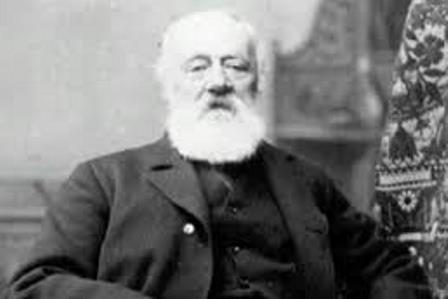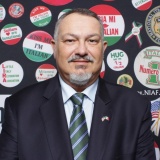
WTI Magazine #53 2015 February, 6
Author : Giovanni Verde Translation by:
The story of Antonio Meucci crosses the Italian genius and creativity with the extraordinary ability of the American people to recognize and highlight talent from all over the world. The life of this Tuscan inventor is that of a humble and reserved man, almost forgotten for so long. It is also the life of a man who found his American dream, then the brutal setback, and finally the recognition of his grandeur and a new momentum of notoriety.
Antonio Meucci was born in Florence on April 13, 1808, the first of nine children from Giuseppe Meucci and Maria Domenica Pepi. When he was thirteen and a half he is admitted to the Academy of Fine Arts in Florence, and starts to study design and the basic arts, in addition to chemistry and mechanics.
It is at Teatro La Pergola, in the October of 1833, that Antonio Meucci has the opportunity to build his first rudimentary laboratory. Called to fill the role of aid toolmaker, Meucci has the ability to do some experiments in the very narrow room he is working in, installing a mobile acoustic mechanism to connect the stage with the attics of the theater.
In 1834 Antonio meets his future wife, Maria Matilde Esther Mochi. The two get married on August 7 of the same year, in the church of Santa Maria Novella. In those years, Italian opera reaches a global success. When the Cuban theater manager Don Francisco Marty y Torrens comes to Italy to form an Italian theater company to debut in Havana, first at the Teatro Principal, then at the Gran Teatro de Tacón. Antonio Meucci and his wife Ester are both hired: Antonio as an engineer, machinist and scenic designer; Ester, as director of the tailoring of the theater.
Meucci and his wife spend in Havana fifteen years of their life together, during which the Italian inventor gest a few successes in the fields of mechanics and hydraulics. In 1849, during some experiments of electrotherapy, Meucci discovers the voice transmission via electricity. Antonio immediately decides to name the system "telegrafo parlante" (speaking telegraph), which then becomes "telettrofono".
In 1850, once expired the contract with the Cuban impresario, Meucci and his wife move to New York, recommended by many American friends, who thought the City perfect for the ingenuity of the inventor. The couple settles in Clifton, a small neighborhood of Staten Island, in a house that today hosts the Garibaldi-Meucci Museum, named so because for some months Meucci will host in that house the Italian patriot Giuseppe Garibaldi.
On December 28, 1871, Antonio Meucci deposit with the US Patent Office the caveat of its invention, called "sound telegraph", waiting to find the money to file the definitive patent. In the summer of 1872, he ask to the American District Telegraph Co. to try his invention on their own lines, delivering all projects. Among the directors of the company there was a man named Alexander Graham Bell. The president of the company agrees with the proposal, but then he refuses to go ahead and claims to have lost Meucci's projects.
The economic difficulties of the Italian inventor lead Bell to take advantage of the situation, so in March 1876 he files a patent for an invention very similar to Meucci's. Antonio tries to defend himself in court, although the caveat is not admissible, because it has already been expired for two years.
What happens next is long and complex. The court decides in favor of Bell, thanks to an absurd judgment, later reversed by the US Supreme Court. In a situation with no winners or losers on an issue of such profound importance, in early 2000 the City Council of New York unanimously approves a resolution that requires the Congress to recognize the paternity of the invention to Antonio Meucci.
On June 11, 2002, the United States Congress proclaims Antonio Meucci the sole inventor of the telephone, fully recognizing his talent and the originality of his idea.



